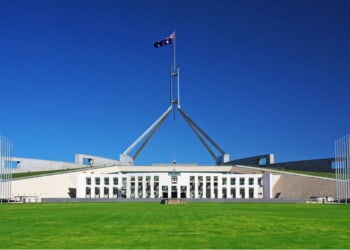India and Pakistan appear ready for conflict, with tensions triggered by a terrorist attack on Indian citizens on April 22 in Jammu and Kashmir. India has good reason to believe that the attack originated in Pakistan from terror bases the Pakistani government knows about and supports. Prime Minister Modi of India will likely respond to the attack militarily. The question is, does Pakistan respond and might the situation escalate?
Historical Context and Current Tensions
India and Pakistan’s relationship has been marked by conflict since their 1947 partition, with Kashmir as a central dispute. The April attack, claimed by The Resistance Front (TRF), an offshoot of Lashkar-e-Taiba, a Pakistan-based terrorist group, killed at least 26 and injured 17. (RELATED: Indian Gender Clinics Shut Down After Losing Funds That Biden Passed Off As AIDS Relief)
Symbolically, the attack came only a day after the arrival of Vice President J.D. Vance for a four-day trip to India with his family. The timing was most assuredly not coincidental.
India’s response has been swift and severe—suspending the Indus Waters Treaty, cutting off water to Pakistan, expelling Pakistani nationals, and recalling Indian citizens. India’s next likely step is to strike terror camps in Pakistan.
Likelihood of Pakistani Response
Given the nuclear capabilities of both nations, any military action by India, such as striking terror camps, is likely to provoke a response from Pakistan. Past Indian airstrikes, like the 2019 Balakot strike, led to Pakistani retaliation. This tit-for-tat may lower the threshold for violent conflict. The water cutoff, an asymmetrical escalation, could compel Pakistan to retaliate to maintain domestic legitimacy, especially under pressure from internal instability given the large share of Pakistan’s population engaged in agriculture which is, in turn, dependent on water that originates in Indian territory.
The Baloch Independence Movement
The Baloch people’s agitation for independence from Pakistan adds another layer of complexity. Balochistan, Pakistan’s largest province, has seen a long-standing separatist movement due to economic marginalization and human rights abuses. The current crisis could embolden separatists, with India accused by Pakistan of supporting them, though India denies this. If the movement gains traction during heightened tensions, it could destabilize Pakistan further, potentially drawing in external actors and complicating regional dynamics.
China’s Alliance and Strategic Calculations
China’s relationship with Pakistan is deep, rooted in shared hostility toward India and formalized through projects like the China-Pakistan Economic Corridor. During past India-Pakistan conflicts, such as the 1965 war, China was prepared to intervene on behalf of Pakistan. In the current scenario, China is likely to support Pakistan diplomatically or militarily. Further, China’s long and disputed border with India in the Himalayas may offer another avenue to pressure India to backoff a serious confrontation with Pakistan.
Could China see an India-Pakistan conflict as a diversion to act against Taiwan? The self-ruled democracy of Taiwan, only 90 miles away from China at its closest point, has seen increasing military pressure from China in the air and seas around the island. If India is preoccupied, it might be less able to contribute to Indo-Pacific security efforts, part of the Quad (U.S., Japan, Australia, India), potentially reducing opposition to Chinese actions. Additionally, a U.S. focus on South Asia could divert resources from the Taiwan Strait, possibly emboldening China. However, any Chinese action against Taiwan is a high-risk move, requiring careful calculation of an American and allied response and international backlash, and it’s unclear if an India-Pakistan conflict would provide a decisive advantage for China.
Strategic Implications and U.S. Policy
For the U.S., balancing support for India, a key partner against China, with preventing nuclear conflict in South Asia is critical. Diplomacy is essential to de-escalate tensions and maintain stability after a needed Indian response to the terror attack on its soil. Even so, a larger Indo-Pakistan conflict may be in the offing.
Chuck DeVore is Chief National Initiatives officer at the Texas Public Policy Foundation. He served in the California State Assembly and is a lieutenant colonel in the U.S. Army Reserve. He’s the author of “Crisis of the House Never United.”
The views and opinions expressed in this commentary are those of the author and do not reflect the official position of the Daily Caller News Foundation.
All content created by the Daily Caller News Foundation, an independent and nonpartisan newswire service, is available without charge to any legitimate news publisher that can provide a large audience. All republished articles must include our logo, our reporter’s byline and their DCNF affiliation. For any questions about our guidelines or partnering with us, please contact licensing@dailycallernewsfoundation.org.


![NYC Tourist Helicopter Falls into Hudson River, Siemens Executive and Family Among Those Killed [WATCH]](https://www.right2024.com/wp-content/uploads/2025/04/NYC-Tourist-Helicopter-Falls-into-Hudson-River-Siemens-Executive-and-350x250.jpg)





![Green Day’s Cringe Trump Diss Ends in Fire and Evacuation [WATCH]](https://www.right2024.com/wp-content/uploads/2025/04/Green-Days-Cringe-Trump-Diss-Ends-in-Fire-and-Evacuation-350x250.jpg)
![Red Sox Fan Makes the ‘Catch of the Day’ with Unconventional ‘Glove’ [WATCH]](https://www.right2024.com/wp-content/uploads/2025/04/Red-Sox-Fan-Makes-the-‘Catch-of-the-Day-with-350x250.jpg)
![Bikini Clad Spring Breakers Prove Our Education System is Failing Students [WATCH]](https://www.right2024.com/wp-content/uploads/2025/03/Bikini-Clad-Spring-Breakers-Prove-Our-Education-System-is-Failing-350x250.jpg)






